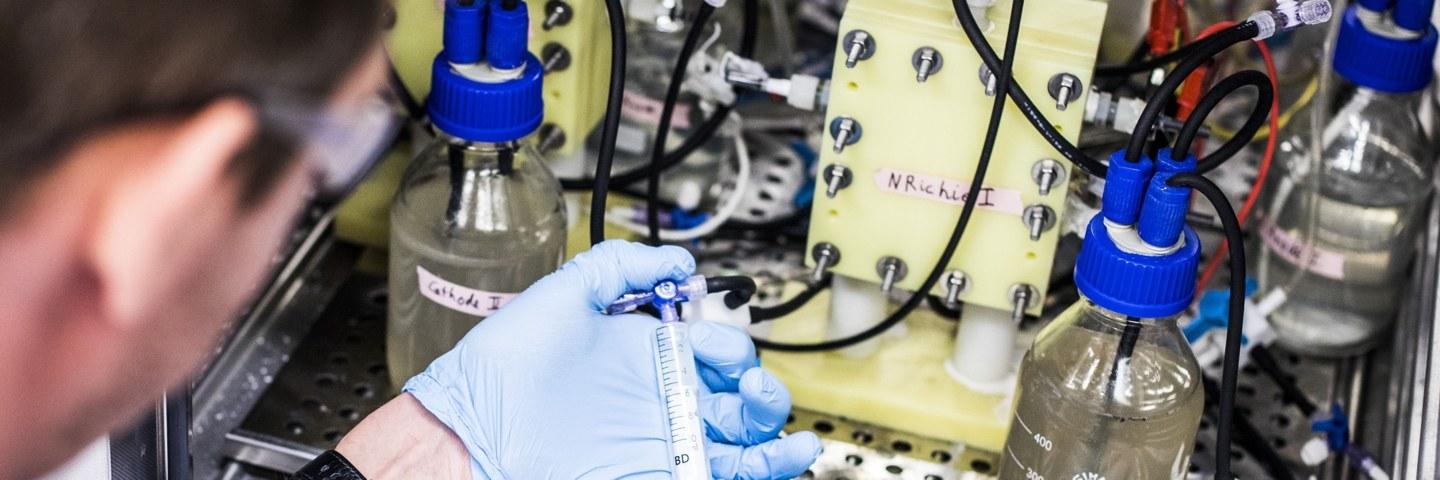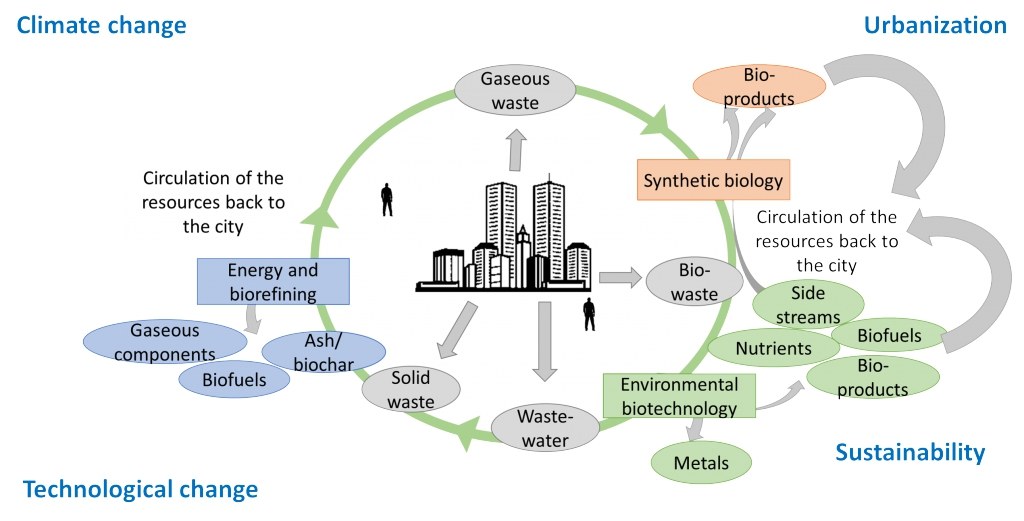The aim of the Bio and Circular Economy is to develop processes to improve energy and eco-efficiency, to conserve the limited resources of raw materials and to reduce environmental emissions. The goal is the production and recovery of water, energy, biochemicals, metals and nutrients from different industrial and urban feedstocks. To achieve the goals, Bio and Circular Economy covers research ranging from molecular-level to large-scale processes.
Bio and Circular Economy has expertise in various biotechnological and thermochemical processes as well as their integration with physical and chemical processes for closing material cycling loops. The research infrastuctures support sustainable development in bio- and circular economy technologies and processes.
Environmental engineering
The environmental engineering team develops processes and concepts for sustainable treatment of and resource recovery from municipal and industrial wastes, wastewaters and flue gas streams. Examples of processes and applications include
- Biogas processes for treatment of biowaste, sewage sludge or industrial waste and side streams. Characterizing the fate of nutrients.
- Microbial electrochemical technologies for nutrient recovery, CO2 reduction to biochemicals, and wastewater treatment.
- Integration of hydrothermal carbonization with biogas processes for treatment of sewage sludge to recover nutrients and to assess the fate of micropollutants.
- Development of physico-chemical and electro-assisted technologies for emerging pollutant removal, extraction of critical raw materials, and nutrient recovery from diverse water and waste streams.
- Development and characterization of novel functional materials for resource recovery and waste valorization, enabling the transformation of waste streams into value-added products.
- Development of online measurements and control systems for drinking water quality management.
- Characterizing and controlling microbial communities in engineered bioprocesses and in different field or built environments, such as in high level hazardous waste storage systems.
Energy and biorefining
The aim of research in energy and biorefining team is to investigate conversion technologies for bio- and waste feedstock materials to energy products and chemicals via thermochemical processes, such as gasification, pyrolysis, torrefaction and combustion. Besides power and heat, the products can be gaseous, liquid and solid biofuels (to replace fossil fuels) and chemicals, such as hydrogen. Feasibility and sustainability of the conversion processes at different scales is also of interest. The research methods include experimental testing at laboratories, as well as mathematical modelling. Research is carried out also with power plant technologies with the aspect of their techno-economical evaluations. Mathematical modelling is done in the area of heat and mass transfer and flow engineering. Examples of individual research projects in energy and biorefining include
- Thermal decomposition of methane to value added products
- Polygeneration of biofuels and energy products from biomass and waste using torrefaction and anaerobic digestion
- Feasibility of flexible biomass utilization in energy systems
- Pyrolysis of agricultural waste biomass and extraction of valuable chemicals from pyrolysis oil
- High temperature liquefaction of biomass and waste
- Optimization of fin arrays cooled by forced or natural convection
- Computational fluid dynamics based approach for predicting heat transfer and flow characteristics of inline tube banks with large transverse spacing.
Synthetic biology
The synthetic biology research team focuses on developing novel engineering strategies for biological systems. The aim is to establish sustainable platforms for the production of biochemicals and other bioproducts from biomass and waste resources. The focus areas include:
- Development of rationally engineered microbial consortia for more efficient biomass utilization
- Bioprocess systems and modeling
- Bacterial biosensors for screening applications
- Functional biomaterials
- Lignin valorization by novel bacterial cell factory
- Production of native and non-native bioproducts from CO2 and waste biomass





































